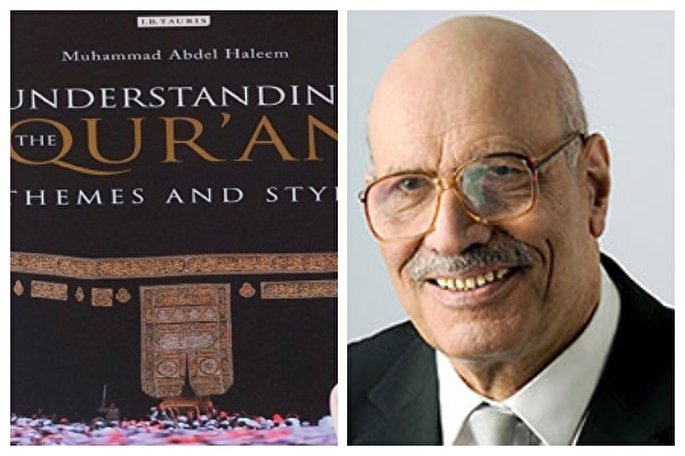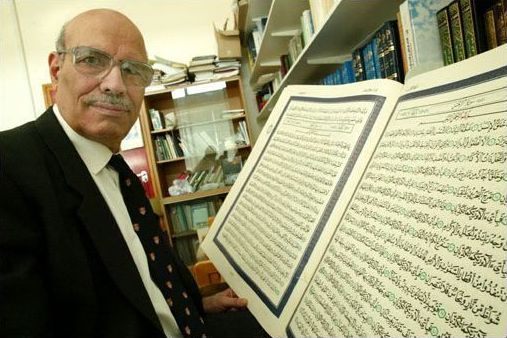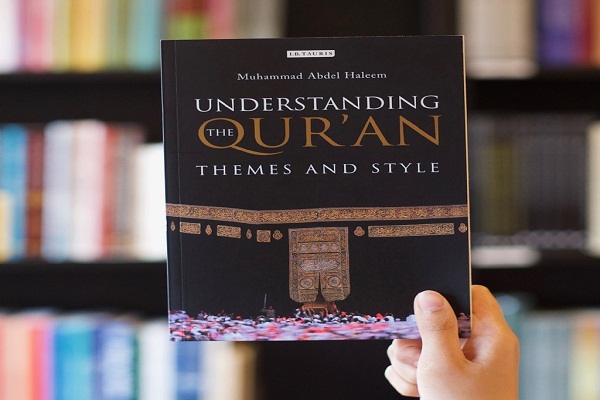A Quran Translation Mainly Meant to Be Read by Non-Muslims

“The important thing about the Quran in Arabic is that it has a strong impact on the reader. Any translation that cannot do this has failed in a fundamental way,” he told IQNA in an interview.
Following is the text of the interview:
IQNA: Could you tell us about yourself and your professional experience?
Abdel Haleem: (I am) Muhammad Abdel Haleem, Professor of Islamic Studies at SOAS University, London. ( I was) born in Egypt, but have been teaching in English universities for many decades.
IQNA: You are a memorizer of the Quran. What inspired you to learn the Holy Book by heart?
Abdel Haleem: I come from a family whose father and grandfather were educated at al-Azhar and the first requirement for this was to memorize the Quran.
IQNA: You are a translator of the Quran into English. What motivated you to translate the Quran?
Abdel Haleem: I found the existing translations not convincing and containing serious inaccuracies. I asked my students at London University which translation they liked best. They said they did not read any of the existing translations because they were written in a language they did not use at school or at university.
The translations were too literal and unreadable. I translated a page and asked them for feedback repeatedly until they found it acceptable, readable and effective. The important thing about the Quran in Arabic is that it has a strong impact on the reader. Any translation that cannot do this has failed in a fundamental way.

IQNA: What was your biggest challenge along the way?
Abdel Haleem: To find ways of producing the exact meaning of the Quran in effective modern English.
IQNA: Could you provide more information about your translation of the Quran?
Abdel Haleem: It has been noted, in reviews and emails, by many readers, Muslims, Jewish, Christians, Hindus and Atheists to be the first translation that makes them read the Quran.
IQNA: When did you begin and when did you finish this translation?
Abdel Haleem: (It began in 1997 and finished in 2004). It took seven years altogether to publication alongside all my other duties.
The Oxford University Press published it. This is very important because many of the translations done before were published by small Muslim publishers or for academic consumption only which limited the availability. Some are only given away in mosques. What I wanted above all was a translation to be read by non-Muslims, since Muslims have enough in Arabic, Persian and so on.

IQNA: Where can one find this translation?
Abdel Haleem: The easiest place is on www.Amazon.com where it is available in various editions.
IQNA: As a Muslim researcher in the UK, to what extent do you think the commandments and teachings of the Quran are applicable in today's world
Abdel Haleem: It depends on how they are presented. There are elements of Islamic teachings which the world now needs more than ever. For instance, being true to one’s contracts, treaties and obligations. The Quran strongly said that you should not break them just because one party has more than the other in terms of wealth, power etc. (Q. 16:91-2). Even going back to the level of regularly washing hands, nose, ears and mouth in wudu (Q. 5:6), all of which is now needed to prevent the spread of coronavirus.
IQNA: What about the Muslim community in UK?
Abdel Haleem: Without the Quran, Muslims in the UK will lose their identity and no longer be Muslims. The Quran is the most fundamental element that should define Muslim identity.
IQNA: How do you think the youth of the second and third generations of Muslim immigrants in the West can be encouraged to learn the Quran and its teachings?
Abdel Haleem: It has to be presented to them in a way they can understand and appreciate and in a language that captivates their attention. Much of what is written and preached in mosques does not fulfil this requirement.
IQNA: One of the biggest problems in the Islamic world is the division and disunity among different Islamic schools of thought. What do you think needs to be done to reduce these problems?
Abdel Haleem: Muslims have to wake up to the fact that so many people in the world are against them and against their religion. Any Islamic denomination is closer to the basic Islamic identity and teachings than hostile outsiders. They should forget about historical, racial and political divisions and stand together for what is good for them and for the rest of the world. Being a Muslim - Sunni, Shia or whatever - is not just a claim but its worth has to be proved by doing what is useful for the Muslim community and all the world at large. Some non-hostile outsiders are closer to the views and values of Islam than some who profess to be Muslims. The Quran qualifies Muslims as those who believe and do good work “alladhīna āmanū wa amilū al-ṣāliḥāt”. This is a fundamental and lasting feature of Islam. This does not just mean praying and giving sadaqa/zakāt but doing good in the widest sense of the word.
Other lasting principles are keeping contracts, as already mentioned, and getting to know others beyond one’s immediate circles.
People, we created you from one male and one female, and made you nations and tribes so that you should get to know one another … (Q.49:13) - know and get closer ( i’talafa), as the Prophet explained it.
Being a good example of such principles is the strongest argument for Islam.
Interview by Mohammad Hassan Goodarzi



